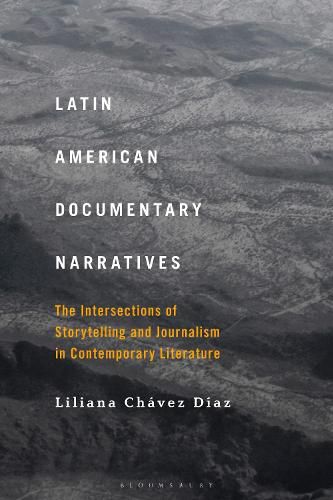Readings Newsletter
Become a Readings Member to make your shopping experience even easier.
Sign in or sign up for free!
You’re not far away from qualifying for FREE standard shipping within Australia
You’ve qualified for FREE standard shipping within Australia
The cart is loading…






Winner of the Victor Villasenor Best Latino Focused Nonfiction Book Award - English, from the 2022 International Latino Book Awards
What defines the boundary between fact and fabrication, fiction and nonfiction, literature and journalism? Latin American Documentary Narratives unpacks the precarious testimonial relationship between author and subject, where the literary journalist, rather than the subject being interviewed, can become the hero of a narrative in its recording and retelling.
Latin American Documentary Narratives covers a variety of nonfiction genres from the 1950s to the 2000s that address topics such as social protests, dictatorships, natural disasters, crime and migration in Latin America. This book analyzes - and includes an appendix of interviews with - authors who have not previously been critically read together, from the early and emblematic works of Gabriel Garcia Marquez and Elena Poniatowska to more recent authors, like Leila Guerriero and Juan Villoro, who are currently reshaping media and audiences in Latin America. In a world overwhelmed by data production and marked by violent acts against those considered ‘others’, Liliana Chavez Diaz argues that storytelling plays an essential role in communication among individuals, classes and cultures.
$9.00 standard shipping within Australia
FREE standard shipping within Australia for orders over $100.00
Express & International shipping calculated at checkout
Winner of the Victor Villasenor Best Latino Focused Nonfiction Book Award - English, from the 2022 International Latino Book Awards
What defines the boundary between fact and fabrication, fiction and nonfiction, literature and journalism? Latin American Documentary Narratives unpacks the precarious testimonial relationship between author and subject, where the literary journalist, rather than the subject being interviewed, can become the hero of a narrative in its recording and retelling.
Latin American Documentary Narratives covers a variety of nonfiction genres from the 1950s to the 2000s that address topics such as social protests, dictatorships, natural disasters, crime and migration in Latin America. This book analyzes - and includes an appendix of interviews with - authors who have not previously been critically read together, from the early and emblematic works of Gabriel Garcia Marquez and Elena Poniatowska to more recent authors, like Leila Guerriero and Juan Villoro, who are currently reshaping media and audiences in Latin America. In a world overwhelmed by data production and marked by violent acts against those considered ‘others’, Liliana Chavez Diaz argues that storytelling plays an essential role in communication among individuals, classes and cultures.